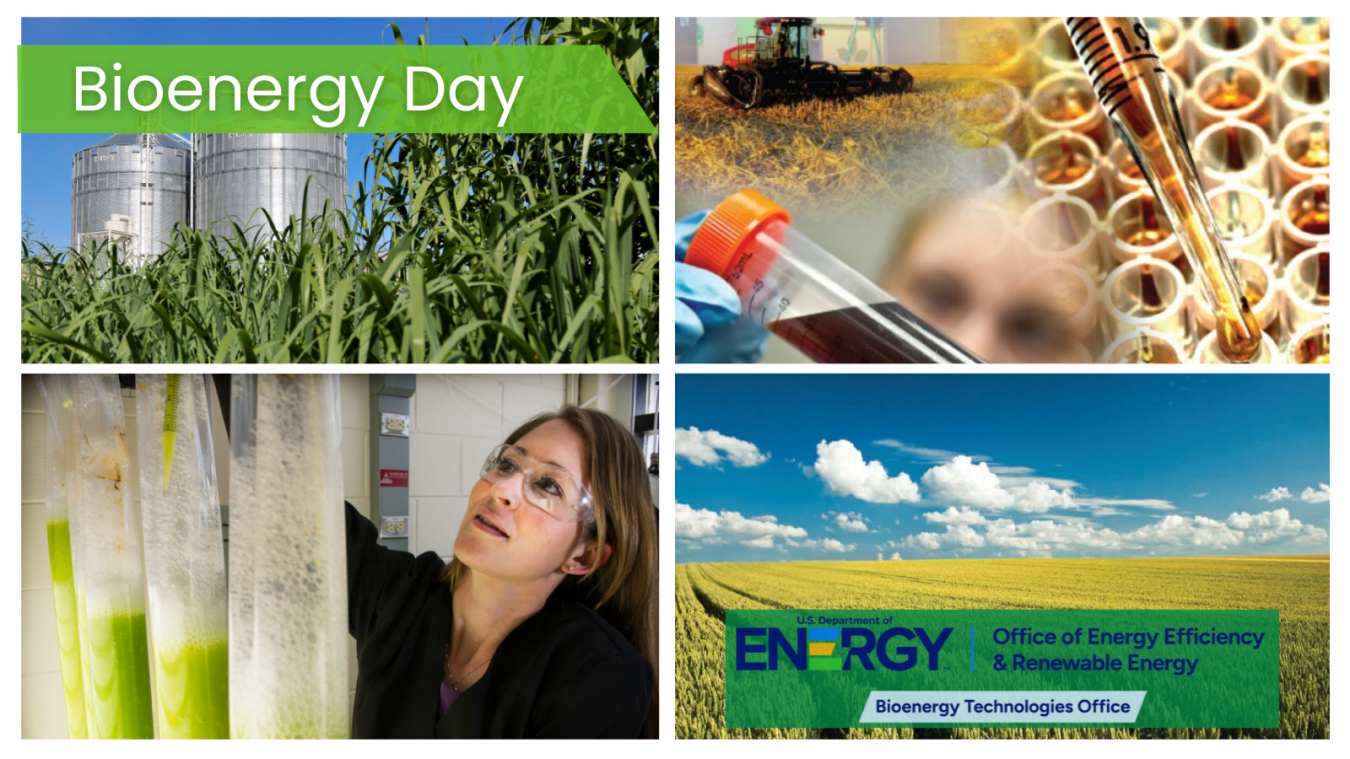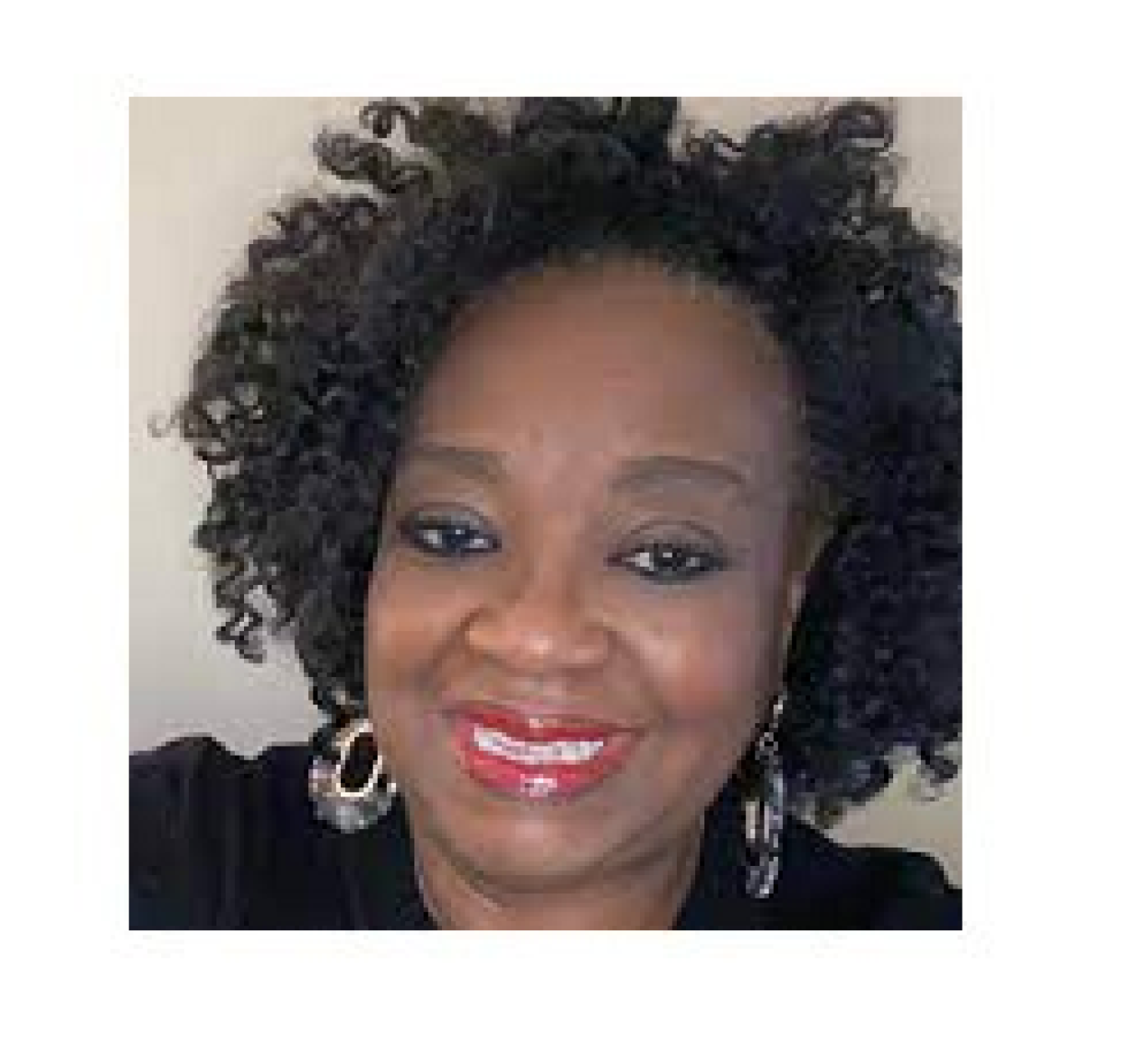How much do you know about Bioenergy? Did you know that bioenergy is used to create biofuels, known as sustainable aviation fuels, that are currently used in our commercial airlines?
October 22, 2024Learning about the Technology and Opportunities
What if we could reinvent, reimagine, and regenerate the world around us to build a clean energy economy to reach net-zero emissions by 2050?

How much do you know about Bioenergy? Did you know that bioenergy is used to create biofuels, known as sustainable aviation fuels, that are currently used in our commercial airlines?
Bioenergy is a form of renewable energy derived from biomass, also known as feedstocks. Biomass feedstocks include dedicated energy crops, agricultural crop residues, forestry residues, algae, wood processing residues, municipal waste, and wet waste.
Biomass can be converted to transportation fuels, chemicals, and bioproducts.
Engage students and prepare the next-generation STEM workforce!
The U.S. Department of Energy's (DOE's) Bioenergy Technologies Office recognizes that bioenergy resources in the classroom are a necessary component for exposing students to the benefits of renewable biomass and waste resources.
October 23, 2024, is Bioenergy Day, a day to learn more about the benefits of bioenergy technologies that are critical in meeting the nation’s decarbonization goals. Bioenergy technologies can decarbonize the transportation, industrial, and agricultural sectors and offer equitable and affordable solutions that promote job creation and economic growth.
With back-to-school in full swing and in observance of Bioenergy Day, learn more about free exciting bioenergy-related education resources from BETO.
Bioenergy Research and Education Bridge Program (BRIDGES)
Are you interested in increasing your students’ bioenergy awareness by immersing them in a real-world national laboratory scenario?
The Bioenergy Research and Education Bridge Program (BRIDGES) case-study based education curriculum is a free resource designed to equip educators with best practices and instructor and student guides to deliver effective lesson plans. Geared towards high school, technical, and community college, and university classroom settings, BRIDGES is a toolkit designed to introduce students to exciting careers in the bioenergy industry.
BETO, in collaboration with Argonne National Laboratory and Idaho National Laboratory, has developed four case studies focused on research and development scenarios to secure the nation’s energy future using bioenergy technologies. Case study topics cover sustainable aviation fuel, upcycling plastics, bioenergy feedstocks, and waste-to-energy potential. Students can assume the following roles:
- Sustainability specialist in the cutting-edge biofuel industry comparing the use of sustainable and petroleum-based jet fuels, including their greenhouse gas emissions.
- Reaction chemist learning how scientists and industry professionals reimagine the life cycle of plastics in the U.S. economy.
- Intern investigating the biomass-to-bioenergy value chain from harvest to conversion.
- Chemical engineer assisting a Tribal Youth Council in exploring sustainable solutions for managing waste streams.
Learn more about BRIDGES and upcoming events and office hours by visiting the BRIDGES website. You can also watch the BRIDGES overview and student testimonial video, a powerful informational tool and an effective way to introduce the program to students and colleagues.
Explore Careers with the Bioenergy Career Map
Bioenergy Day is also a great time for students and individuals looking for a career pivot to explore interests in STEM and STEM-adjacent careers. A robust bioenergy industry will generate U.S. jobs across several sectors, from farming and trucking to microbiology and chemical engineering. Bioenergy and bioproduct production have the potential to serve as a vehicle for domestic job creation and economic opportunity throughout the nation.
BETO has a tool to help map out your career and identify how your skillset aligns with certain opportunities. Check out BETO’s Career Exploration Wheel - an interactive, educational tool that explores the vast network of bioenergy occupations, illustrates potential career pathways, and identifies the education and training required for each career. The career map profiles more than 60 positions and 100 tracks of advancement among careers that span across five subsectors of the bioenergy industry:
- Agriculture, Life, and Physical Science
- Engineering and Manufacturing
- Education, Communication, and Outreach
- Infrastructure
- Operations, Management, and Business
Find out more and learn how to use the Career Exploration Wheel and Bioenergy Career Map. Start mapping your bioenergy career today!
Internships and Fellowships: Developing Skills in a Professional Environment
Each year, DOE, the Office of Energy Efficiency and Renewable Energy, and BETO supports internships and fellowships that provide hands-on experience in the bioenergy field. These programs are an excellent way to gain the skills and knowledge needed to jumpstart your career.
The DOE Scholars Program is a 10-week internship program that provides post-secondary students the opportunity to participate in paid internships, research, and individual development aligned with the mission of DOE. Participants focus on a variety of disciplines within DOE offices and power administrations across the country.
Applications are open for the 2025 DOE Scholars Program and the deadline is February 16, 2025. The DOE Scholars Program web page contains the most up-to-date information on the program and how to apply for it. While there is a deadline for the summer program, there are opportunities also available on a rolling basis.
Looking for Job Opportunities?
Apply for more federal student and recent graduate positions on USAJOBS and EERE’s Internship and Fellowship web page that support tomorrow's bioenergy workforce.
Hands-On Activities Available: Bioenergy Basics and Bioenergy Coloring and Activity Book
Celebrate Bioenergy Month with hands-on activities that will teach students about the importance of sustainability, conservation, and recycling, all through bioenergy. Bioenergy uses biomass, such as plants, algae, and organic waste resources, to produce transportation fuels, power, and biobased products, including cosmetics, perfumes, and plastics.
An educational and entertaining Bioenergy Coloring and Activity Book is available that offers a learning experience to teach key bioenergy facts and raise awareness of renewable energy. Download a printable copy and learn more about bioenergy basics.
Visit the Bioenergy Careers and Education web page for more information.
Sheila Dillard is the Stakeholder Engagement Lead for the U.S. Department of Energy (DOE) Bioenergy Technologies Office’s (BETO) multi-faceted strategic communications portfolio.
Sheila Dillard

Sheila Dillard is the Stakeholder Engagement Lead for the U.S. Department of Energy (DOE) Bioenergy Technologies Office’s (BETO) multi-faceted strategic communications portfolio. In this role, Sheila manages BETO’s traditional and digital media, the BETO and Bioenergy Review Board Initiative website, STEM and workforce development initiatives, media inquiries, executive and stakeholder engagement, along with program and product development. She leads a team of communication and technical professionals who collaborate to strengthen BETO’s brand and market position while supporting BETO’s mission and priorities.
With over 27 years of government and corporate experience, Sheila has successfully served as a communications and corporate strategist, in addition to managing multi-sector stakeholder engagement, elevating brand awareness and executive visibility, internal communications, and media relations. Her experience also includes executing transitional strategies to support organizational asset transfers, maintaining federal and agency compliance standards, and identifying solutions to implement operational requirements.
Sheila holds a Bachelor of Science in International Business, Business Law, and Government Policy, as well as a Master of Science in Management and a Master of Business Management from the University of Maryland–Global. She also earned a brand management certification from Cornell University, a Diversity, Equity, and Inclusion in the Workplace certification from the University of South Florida - Muma College of Business, and a paralegal certification from George Washington University.





